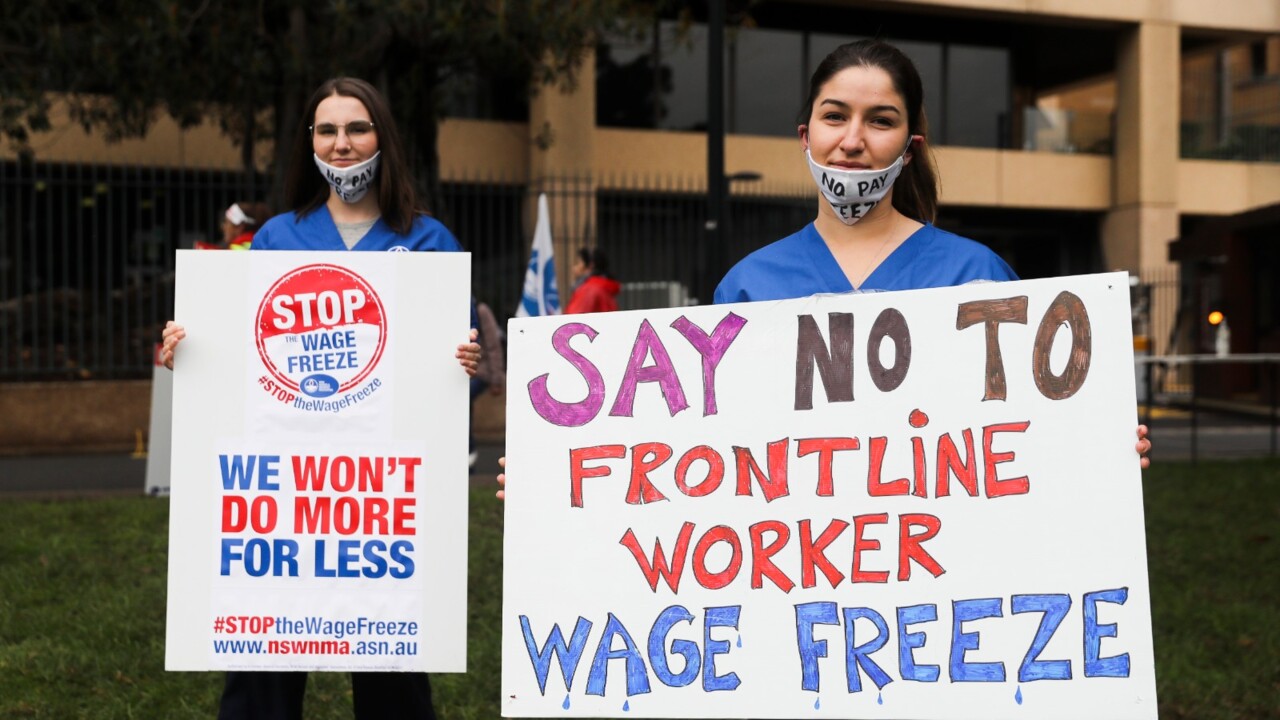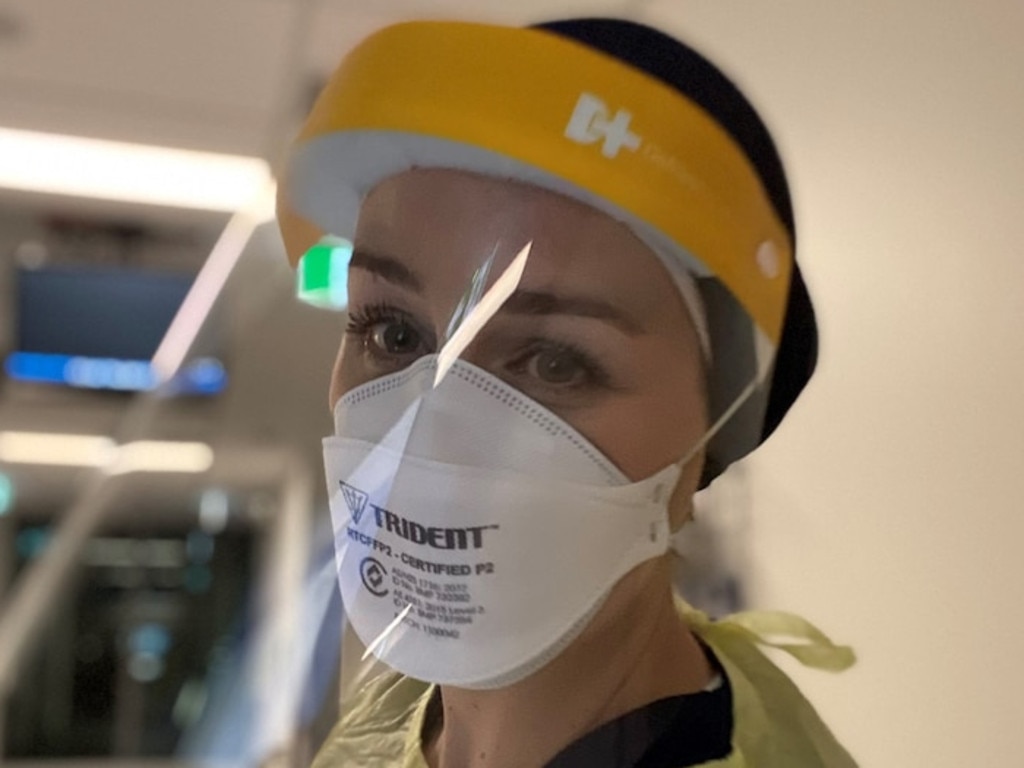‘Dangerous’: Surprise reason so many nurses are quitting
Aussie nurses have come under immense pressure throughout the pandemic but there is another reason so many people are quitting.

Nurses came under intense pressure during the Covid-19 pandemic but some say it was not just gaps in the system making their working lives harder.
Alleged bullying, favouritism and neglect by managers and executives has led some nurses to leave the profession, creating even larger holes in staff rosters.
Sofia (not her real name) was one of the 20,000 nurses to quit the profession last year.
She said one of the reasons for leaving a job she loved was feeling bullied by her manager.
“There is a big bullying culture in nursing and against people that speak up – bosses will turn on them. That’s why no one says anything,” Sofia said.
Sofia – who is Muslim and wears a headscarf – was told by another senior nurse the reason she was being passed up for further training opportunities was because the boss was “racist”.
“That boss, you could tell who she liked and who she didn’t. If you were one of the ones she didn’t like, your concerns would go unheard no matter what you say,” she told NCA NewsWire.
“There’s a very bad culture in nursing. We had no one to tell except for each other because our bosses aren’t approachable.”

Former nurse Amy Halvorsen, who also left the profession last year, said the standards and quality of leadership within hospitals had slipped.
Ms Halverson said that in many cases, managers had found themselves between a rock and a hard place during the pandemic.
She said with the “chaos” of Covid-19, exacerbated by understaffing and constant changing of protocols, the focus shifted to simply getting by shift by shift.
“There was no chance to debrief, it was just onwards to the next thing,” Ms Halverson said.
“I think management lost their ability to have heart and compassion because everyone just became focused on getting it done.
“They’re too busy to really keep an eye on all of their staff and their staff’s personal problems. I felt like going to my manager and saying ‘I’m not happy and I want to leave’ was the least of the problems at the time.”

Former nurse and founder of Fire Up coaching Kathy McKenzie said the amount of training being put into creating better managers in healthcare was severely lacking.
Ms McKenzie said it was more important than ever to help the healthcare industry endure some of its greatest challenges.
“They get busy doing the work – but they actually never develop their staff,” she said.
“So they concentrate on the day-to-day tasks to get done, which is fine, but if you don’t actually develop people’s awareness they get very narrow in their thinking.”
“One of the big things I hear a lot of is the lack of appreciation for diversity. I really do shudder with some of the racist comments I hear which if they weren’t so short staffed would be a sackable offence.”
Ms McKenzie said arbitrary performance indicators and protocols were a major headache that regularly led to nurses being reprimanded for small mistakes.
“That’s a very common thing in health, rather than appreciate the really long hours that people are putting in, they pick on the minutiae,” she said.

Sofia recalled the way a small mistake was handled, which left her feeling shamed in front of colleagues.
“My boss pulled me up once because I left one needle in a dish. It wasn’t safe, but she yelled at me in front of everyone for it. I’ll never forget it,” Sofia said.
“They don’t see all the effort you’re putting in. We never had a nice word. We never had a ‘guys you all did great today’.
“Sometimes just one word of encouragement is what we need to get through the shift.”
Ms McKenzie said having staff fearful to speak up was not only detrimental for them, but could easily create an unsafe environment.
“If people are feeling threat in a workplace they won’t report accidents or mistakes and that’s where I see a real issue,” she said.
“Someone who’s a real power tripper and scares the shit out of everyone under them – and there’s plenty of them in health – what happens is people don’t report if there’s a drug error or any kind of mistake,” she said.
“If you think that you’re gonna have strips torn off you won’t report it.”
Ms McKenzie said she feared the catalyst for change would only come when there was another public tragedy.

Ms Halverson agreed, described existing staffing levels as “terrifying”, while Sofia said the lack of staff across all areas was putting lives at risk.
“Those sorts of things happen because people are just not paying attention and not listening to people in the front line,” Ms McKenzie said.
“When something disastrous happens they always find the money then. But it’s too late.”
A spokesperson for NSW Health – which oversees a workforce of roughly 50,000 nurses – said it provided leadership and management development training programs.
It also promotes the core values of collaboration, openness, respect and empowerment and is working to create an online tool for managers to help navigate staff grievances and concerns.
“This is part of a larger project that will build capability for managers and staff in strengthening workplace relationships,” the spokesperson said.
“NSW Health is also piloting a methodology to undertake timely investigations into the culture of individual wards and units within health services, designed to help managers resolve culture-based issues.”



